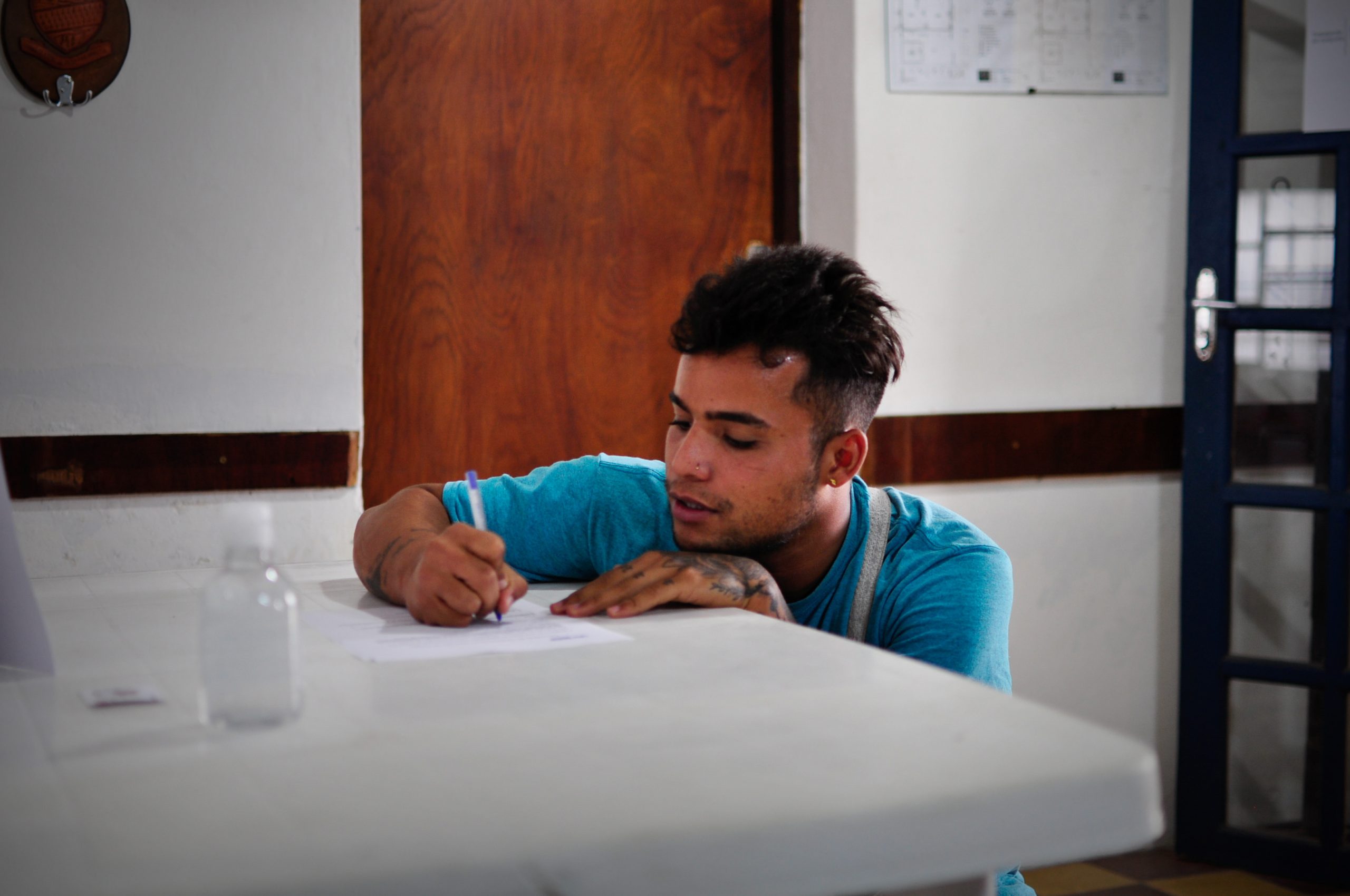
© UNHCR/Uruguay
Snapshot
Entities sharing this good practice: Refugee Commission (CORE)
Submitted by: Refugee Commission (CORE)
Key stakeholders: Servicio Ecuménico para la Dignidad Humana (SEDHU), UNHCR Uruguay
Uruguay’s 2006 Law No. 18.076 on refugees led to the establishment of the Refugee Commission (CORE), the state body in charge of refugee status determination (RSD) in Uruguay. The Permanent Secretariat of CORE is the body in charge of receiving and analyzing asylum applications in the country.
At the beginning of the COVID-19 pandemic, the offices of the National Directorate of Migration, the permanent Secretariat of CORE in the Ministry of Foreign Affairs, as well as those of the Ecumenical Service for Human Dignity – SEDHU closed its face-to-face services.
However, to guarantee that people could continue accessing the RSD procedure, the authorities established the possibility of requesting asylum by email to: [email protected] / [email protected]
Only Applicants who are physically in Uruguay can request asylum by email, whereas those who are not yet in Uruguayan territory can present their application at the border. By means of Decree No. 104/020, in March 2020, the State established an exception to the prohibition of entry to the territory which was put in place due to COVID-19 in cases where individuals were found to be manifestly in need of international protection.
The remote application procedure from applicants who are already in Uruguayan territory is as follows: once CORE receives the email, it responds by sending the applicant a form to complete. In response, the applicant must email back the completed application initiation form, along with the identity documentation of the country of origin and the stamp of entry to Uruguay, if any.
Once the application is received, the receipt is confirmed via email and the applicant receives a certificate that proves the start of their process. With this certificate, the applicant must contact the National Migration Directorate (DNM) by phone, to process the “arrival certificate”. This arrival certificate verifies the category of foreigners in the country and certifies the migratory movements (entry and exit from the country). On the day scheduled with DNM, the applicant must send by email a photo of the passport and vaccination certificate, a requirement established by the Ministry of Public Health. If the applicant brings the certificate issued in their country of origin, it is validated by any vaccination center in the country, where they confirm that they comply with the Uruguayan vaccination scheme. In case the applicant does not have all the vaccines or does not have the certificate; the applicant can access vaccination in Uruguay and obtain the corresponding certificate.
Once ready, the DNM sends the arrival certificate to the National Civil Identification Directorate. Once this step is completed, the applicant must attend personally (by appointment) to process their provisional identity card as an asylum applicant. The identity card is proof of the applicant’s status and regular stay in the country, and allows the applicant to formally work in Uruguay, in accordance with current national regulations, and access all public health and education services. The provisional identity card will be valid until there is a final resolution of the asylum application.
Activities
The new procedure as shown below was publicized through the website of SEDHU, Help Uruguay and MCO-Argentina.

Impact of the good practice
During 2020, CORE registered 2,947 applications. Of these, 250 were registered via email.
Challenges
- There have been difficulties in verifying that the person submitting an application is in the territory.
- Given the context of remote assistance, there were delays in the issuance of identity cards by the National Civil Identification Directorate.
The remote measure adopted in view of the emergency caused by the COVID-19 pandemic, allowed the asylum system to continue fulfilling its protection functions and increased efficiency of the procedure while complying with health protocols.

Recent Comments